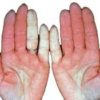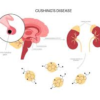Understanding Diverticulitis and Ayurvedic Approaches to Management
Understanding Diverticulitis and Ayurvedic Approaches to Management is a common gastrointestinal condition characterized by the inflammation or infection of diverticula, which are small pouches that can form in the walls of the intestines. While the exact cause of diverticulitis is not entirely understood, factors such as a low-fiber diet, sedentary lifestyle, and genetic predisposition play significant roles in its development. In this blog, we will explore the condition in detail and delve into Ayurvedic medicine’s holistic approach to managing and preventing diverticulitis.
What is Diverticulitis?

Diverticulitis occurs when diverticula, which can develop in the colon’s lining, become inflamed or infected. Symptoms may include:
- Abdominal pain (often on the left side)
- Fever
- Nausea or vomiting
- Changes in bowel habits (constipation or diarrhea)
In severe cases, diverticulitis can lead to complications like abscesses, perforations, or bowel obstruction, necessitating medical intervention.
Risk Factors
Several risk factors may increase the likelihood of developing diverticulitis:
- Age: Risk increases with age, particularly in individuals over 40.
- Diet: A diet low in fiber may contribute to the formation of diverticula.
- Obesity: Higher body weight is linked to a greater risk.
- Sedentary Lifestyle: Lack of physical activity can exacerbate digestive issues.
- Smoking: Tobacco use has been associated with increased risk.
The Ayurvedic Perspective
Ayurveda, the ancient Indian system of medicine, emphasizes balance in the body, mind, and spirit. It operates on the premise that health is achieved when the three doshas (Vata, Pitta, and Kapha) are in harmony. From an Ayurvedic viewpoint, diverticulitis may be seen as an imbalance in these doshas, particularly Vata, which governs movement and digestion.
Ayurvedic Causes of Diverticulitis
- Imbalanced Diet: Consuming processed, heavy, or low-fiber foods can disturb the digestive fire (Agni), leading to the formation of toxins (Ama).
- Poor Digestion: Inadequate digestion can cause waste accumulation and create an environment for diverticula formation.
- Stress: Emotional and physical stress can disrupt Vata, leading to digestive disturbances.
Ayurvedic Treatment Approaches
Ayurveda employs a multi-faceted approach to treating diverticulitis, focusing on diet, herbal remedies, lifestyle modifications, and detoxification.
1. Dietary Recommendations
A key component of Ayurvedic treatment is diet. A fiber-rich diet is crucial for managing diverticulitis, as it promotes regular bowel movements and reduces pressure in the colon.
- Increase Fiber Intake: Incorporate whole grains, fruits, vegetables, and legumes into your diet. Foods like oats, barley, lentils, spinach, and apples are excellent choices.
- Warm and Cooked Foods: Favor warm, cooked foods that are easy to digest. Avoid raw and cold foods, which can aggravate Vata.
- Stay Hydrated: Drink plenty of water to help soften stool and prevent constipation.
- Avoid Trigger Foods: Limit spicy, fried, or processed foods, as well as alcohol and caffeine, which can irritate the digestive tract.
2. Herbal Remedies
Ayurveda utilizes various herbs and formulations to support digestion and reduce inflammation. Some commonly used herbs include:
- Turmeric (Curcuma longa): Known for its anti-inflammatory properties, turmeric can help reduce inflammation in the intestines.
- Ginger (Zingiber officinale): Ginger aids digestion and can help soothe the digestive tract.
- Triphala: A combination of three fruits, Triphala supports digestive health and promotes regular bowel movements.
- Psyllium Husk (Isabgol): This natural fiber supplement can help bulk up stool and ease constipation.
3. Lifestyle Modifications
In addition to dietary changes, adopting a balanced lifestyle is essential for managing diverticulitis:
- Regular Exercise: Engage in moderate physical activity to promote healthy digestion and maintain a healthy weight.
- Stress Management: Incorporate practices such as yoga, meditation, and deep breathing exercises to reduce stress and balance Vata.
- Routine: Establish a regular eating and sleeping schedule to support digestive health.
4. Detoxification
Ayurvedic detoxification techniques, known as Panchakarma, may be beneficial for individuals with chronic diverticulitis. These treatments aim to remove toxins from the body and restore balance.
- Abhyanga (Oil Massage): This therapeutic massage helps improve circulation and relaxes the body.
- Basti (Enema Therapy): Herbal enemas can help cleanse the colon and improve digestive function.
- Swedana (Herbal Steam Therapy): This therapy promotes sweating and helps detoxify the body.
Prevention Strategies
Preventing diverticulitis is crucial for maintaining gastrointestinal health. Here are some preventive measures based on Ayurvedic principles:
- Dietary Balance: Maintain a fiber-rich diet to support regular bowel movements and prevent constipation.
- Mindful Eating: Practice mindful eating by chewing food thoroughly and paying attention to hunger and fullness cues.
- Regular Health Check-ups: Consult with healthcare professionals for routine screenings and digestive health assessments.
- Stay Active: Incorporate physical activity into your daily routine to promote digestive health.
Conclusion
Diverticulitis can be a challenging condition, but Ayurvedic medicine offers a holistic approach to management and prevention. By focusing on dietary changes, herbal remedies, lifestyle modifications, and detoxification, individuals can support their digestive health and restore balance in their bodies. Always consult with a qualified Ayurvedic practitioner or healthcare provider before starting any new treatment regimen to ensure it aligns with your individual health needs. Embracing these holistic practices can lead to improved health and well-being, helping you manage diverticulitis effectively.








Leave a reply